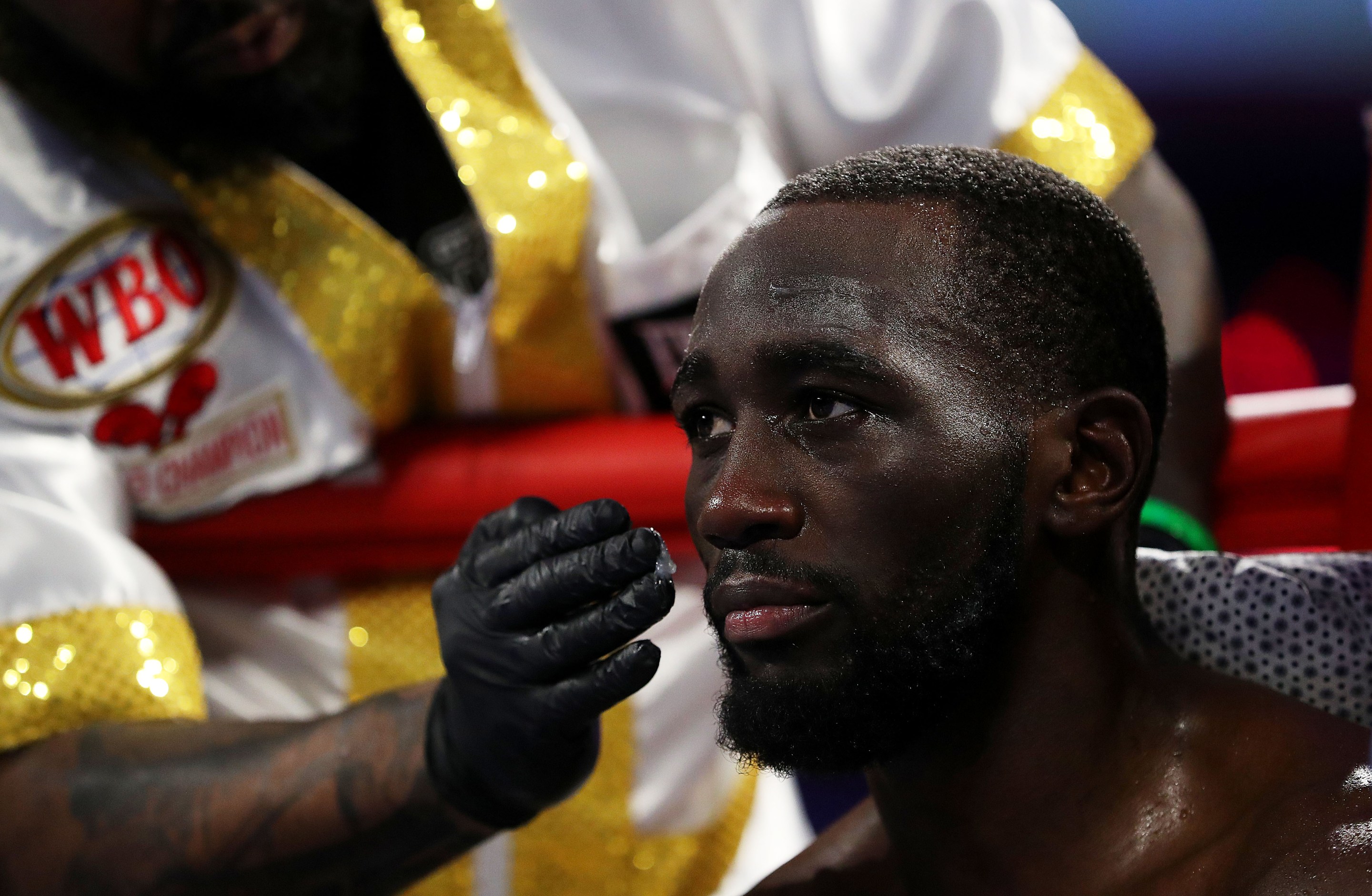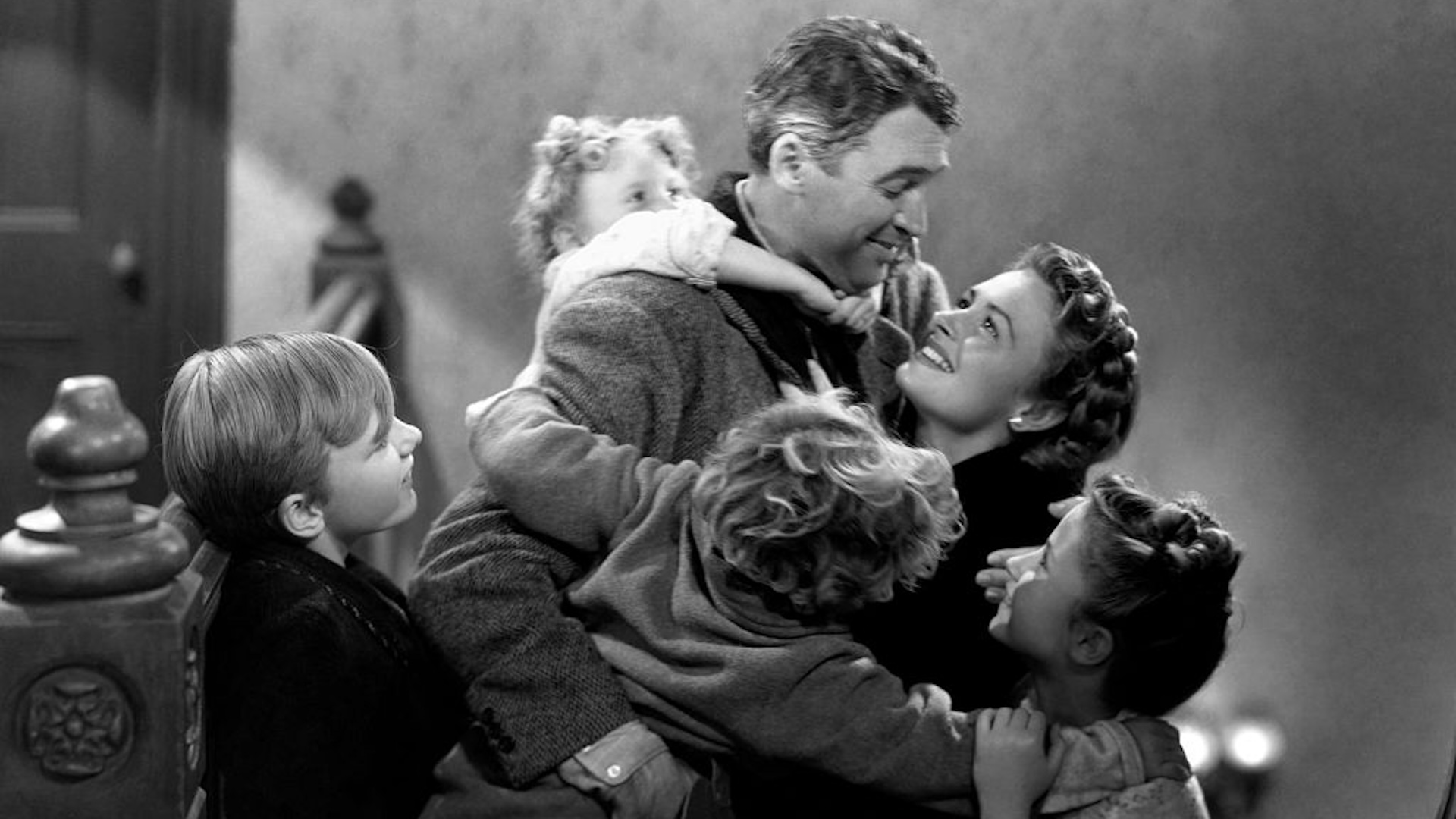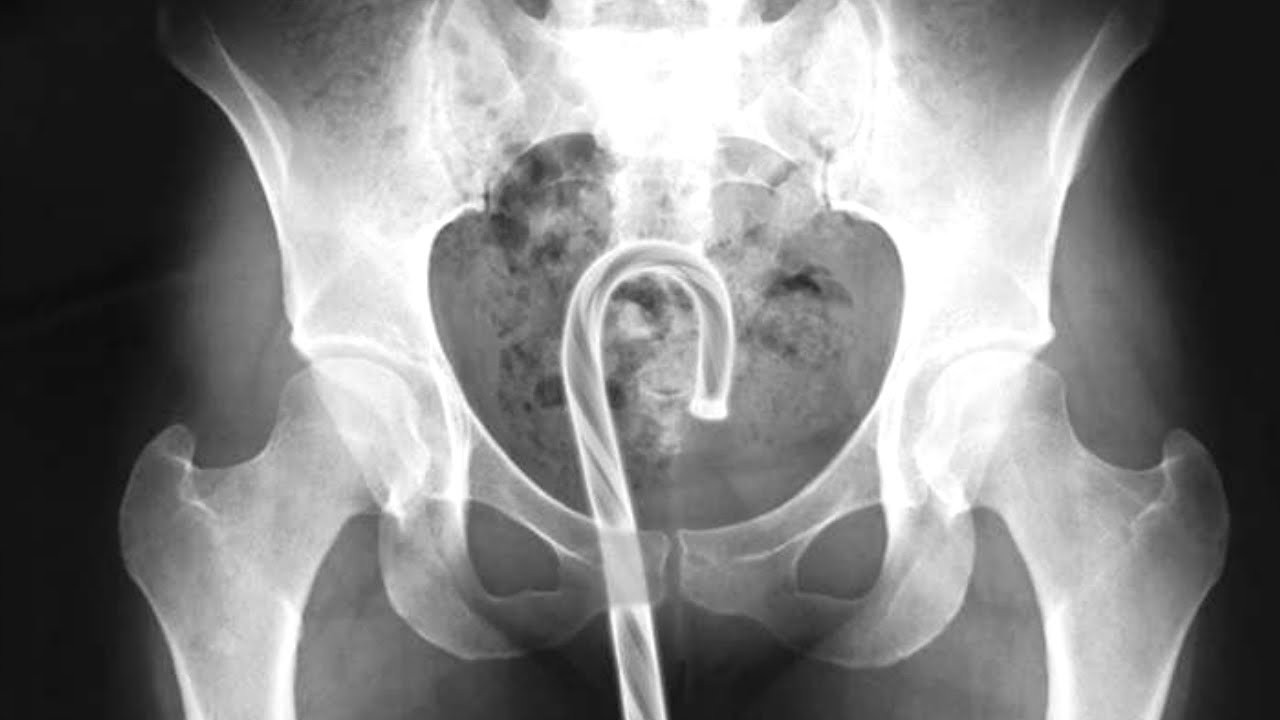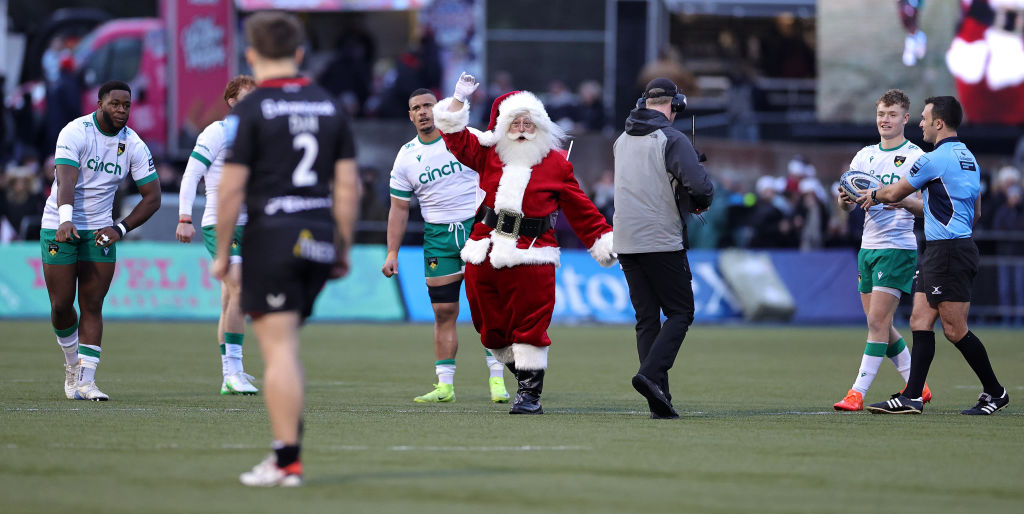At least Terence Crawford gave everybody what they wanted to see. After a co-feature bout that showcased several times as much deliberation as actual boxing, the world pound-for-pound king returned from a nearly year-long layoff on ESPN Saturday night to silence any doubters who might claim that he does not deserve his place within the sport. Defending his welterweight title against a former champ in Kell Brook—a guy who loses to all-time greats but beats everyone else—Crawford took a quiet few rounds to settle in but dropped all pretense of conservatism when he stung Brook out of nowhere with a wrecking ball of a right hand.
That one punch, which was timed perfectly for maximum damage as Brook was moving his head forward, essentially ended the fight before it could really warm up. Brook cartoonishly stumbled into the ropes, took an eight-count from the ref, and then allowed himself to get bounced back and forth between the ropes and Crawford's fists for a few more seconds until the TKO call came in. It was yet another in what is now a long, long list of forceful statements from the 37-0 Bud Crawford.
Crawford's emphatic knockout was an acceptable apology for what had come before it: no exaggeration, maybe the worst half hour or so of boxing television in history.
The other fight on the card—which was held up until Arkansas-Florida finished up—pitted Andrew Moloney against Joshua Franco in a rematch of an earlier bubble fight where Moloney lost his super-flyweight belt. It looked at first as though Moloney might have successfully reclaimed his championship in a mere six minutes, as ringside doctors stopped the fight after two rounds because Franco's eye swelled shut. When he learned of the news, Moloney even let out a primal scream that echoed eerily through the empty conference center-turned boxing arena, thinking he'd won. But the first sign that something was off had come earlier in the second, when the referee Russell Mora called time due to the extent of Franco's injuries.
"Looking at the eye from an accidental headbutt," the ref could be heard saying. His interpretation of events, unfortunately for Moloney, was that Franco's closed eye was caused not by a legal punch, but by a headbutt. Because of that belief, and because the fight had gone for fewer than four rounds, Moloney did not get the win, and the bout did not go to the scorecards for a technical decision, but rather, it was ruled a no-contest.
Here's the thing: What headbutt? The longer that the review of the ref's decision dragged on, the more ESPN's crew struggled to find any justification for the time it was taking. It wasn't even clear to outsiders during the review what part of the fight, exactly, officials were looking at. It was apparently this bit from the first minute. Calling the fight a no-contest and not awarding it to Maloney would require one to believe that this (or, uh, maybe this? Again, communication with the viewers was poor the whole time) was the cause of Franco's closed eye.
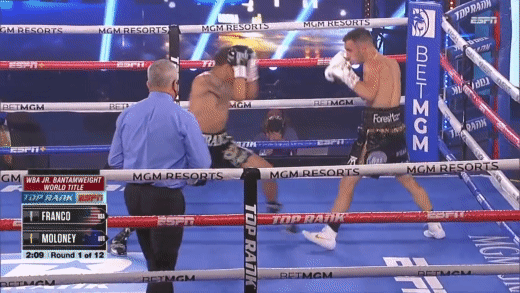
It would also require you to look at the below punch and decide that it was not the cause of Franco's inability to continue, and it'd require you to ignore analyst/former fighter Timothy Bradley saying, "You get swelling in your eye when this happens."
The Zaprudering of the brief fight lasted an interminable 25 minutes. I can't even imagine how incensed the crowd would be at the ridiculous hold up if this were held in the Before Times (or in Texas). It was enough of a delay that you could have watched the entire fight four times over at normal speed. It was just awful, awful, awful stuff.
The result of all that nonsense was the Nevada State Athletic Commission ruling that the no-contest would stand, later justifying their decision by pointing to the replay rules and claiming that they were not "100 percent sure" that Mora had made the wrong call.
Maybe there's something to that. Maybe you could watch all the footage and say you're only about 95 percent sure that the injury came via legal means, and that's not enough to overturn the ref. But to make what really didn't feel like the right call, and to only get there after making fans suffer through an insular, drawn-out, deeply unfun process, is how you push viewers away from the number-one fighter in the business.
And that doesn't even account for what it did to the assumed winner. Instead of enjoying a quick triumph in a redemptive rematch, Moloney instead was forced to reckon on live TV with the robbery and the complete lack of payoff.
"That eye was closed by 50 jabs," he said. "That's why his eye is shut—not the headbutt. There's no headbutt. I can't believe they took this away from me. I've trained my ass off for the last five months, been away from my family, and they just take it away from me."
The half-hour debacle felt especially embarrassing because, at other times, boxing's replay system has been an honest-to-god point of pride for the sport. Just last month, also in Nevada, a very breezy replay in the match between Arnold Barboza Jr. and Alex Saucedo took what was first ruled as a slip and changed it into a knockdown in a barely noticeable few seconds. Joe Tessitore, on the call, even loudly proclaimed the fight's superiority to other sports in the realm of replay review.
"For everybody who spent the entire day watching college football, and getting angry at the TV as it takes three minutes, and five minutes, and six minutes for review, boxing just did it in about 10 seconds after the round," he said. "Well done by the Nevada State Athletic Commission."
Plenty of words—honestly too many, in my view—get written on a regular basis about boxing's inherent brokenness, and the big complaints are pretty familiar at this point. Specifically, people get frustrated with the sport because too often the judges turn in baffling scorecards and because the fights people most want to see typically don't happen when they'd be most exciting. (If it weren't for this botched decision the bigger discussion out of Saturday would be, "When does Crawford get a true mega-fight?") I'm used to those by now, and I've made peace with the fact that the thrills and surprises of the sport more than make up for its incompetent bureaucracy. But to now add this other thing to be annoyed about, this absurd intermission that sucked all drama and life out of an already lifeless venue? That might be enough to push anyone to the breaking point.
But then Terence Crawford happened. The sudden skill and might with which he dispatched his opponent—the way you could watch that slo-mo replay over and over and over again and still be amazed at the sorta-jab that turned Kell Brook's world upside down—erased all the boredom and the frustration that came before it. If you watch sports mainly to see the greatest athletes in the world do what few can, then Crawford may very well be the most satisfying performer anywhere on the whole damn planet. It was very nice to see that he has, if anything, become more dangerous after his 11-month layoff, and he remains one of maybe a handful of fighters for whom you'd gladly sit through 30 minutes of nothingness if it meant watching him do his thing at the end.
